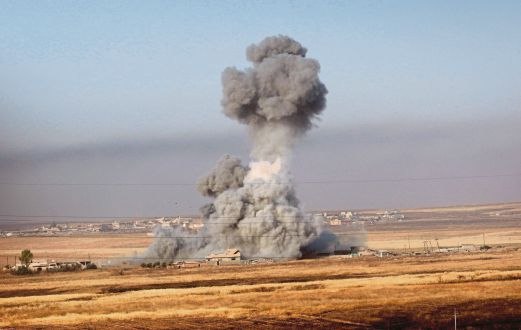AS we head rapidly towards mid-2016 and beyond, where do we stand on the issues of radicalisation and terrorism? In the first quarter of this year, major Islamic State-instigated attacks rocked the cities of Istanbul, Ankara, Brussels, and Jakarta. The fact that IS has expanded its atrocious activities, even close to Kuala Lumpur, suggests that the group has intensified its resolve to go after strategic targets beyond Iraq and Syria, Southeast Asia included.
Consequently, at least two issues of concern have emerged for the Malay Archipelago states of this region.
The first issue concerns the reflection by some observers that as IS loses ground in the Middle East, the group will likely be pushed to establish a sanctuary in Southeast Asia, a region long-perceived as a fertile ground for militancy and extremism. This represents a direct challenge to the political structure of the Southeast Asian states.
The second issue is much direr in nature, as it relates to the call made in Dabiq — IS’ prime magazine — for the group’s Malaysian and Indonesian supporters to unleash terror wherever they are, if migrating to IS’ territory proves to be difficult.
Former Kumpulan Mujahidin Malaysia leader Zainuri Kamaruddin has since compounded the threat by declaring a war against Malaysia in a recently circulated video. This could plausibly translate into greater IS-inspired trouble in the cities of this region.
It should not be much of a surprise, then, if we find IS launching a renewed wave of radical messages in the following months as it gears towards recruiting new members, mounting more attacks, and attempting to establish a foothold in Southeast Asia. Despite a successful track record in foiling and managing terror attacks in recent years, are Southeast Asian states capable of achieving similar feats in warding off radicalisation?
Fortunately for us, governments in Southeast Asia have been very active in backing up and disseminating counter-narratives to stop more individuals from falling into the clutches of IS. The Global Movement of Moderates Foundation currently promotes the concept of “moderation” among Malaysians, which entails the renouncement of an extremist attitude and the embrace of a modest, yet modern life. In Indonesia, Nahdlatul Ulama has vigorously advocated its “Islam Nusantara” concept, and has even hosted an international summit and assembled a team of cyberwarriors to promote this non-violent version of Islam. Singapore has not been idle either: in the wake of recent attacks elsewhere, it has embarked on a robust public education campaign to paint terrorism as profane, divorced-from-religion acts.
Yet, such state-sponsored counter-narratives are often the subject of criticism due to what is perceived as their reactive, artificial and insincere nature. Arguably, a state and its agents would not have initiated these concepts had the terrorists not struck the first blow.
At this point in time, however, it is fallacious to dismiss the utility of our best chances of challenging the radical narratives by IS. It is the contention of this piece that such counter-narratives must be retained in our larger counter-radicalisation strategy.
There are several pathways that we can tread to improve the effectiveness of state-sponsored counter-narratives.
FIRST , any counter-narrative that draws from the local practice of Islam in Malay Archipelago states, which is supposedly imbued with tolerance, harmony and respect, must not be constructed in a manner that alienates other Muslim groups from its reach.
It would be counter-productive if a counter-narrative is accused of propagating “religious racism” for merely highlighting the creed and customs of a certain Muslim group while denouncing the others. This problem is quite prominent, for example, in any counter-narrative that conflates extremism with “Arabisation”.
SECOND , an effective counter-narrative must strike hard and deep into the hearts of the subjects. However, it cannot do so if the audience perceives it as being too closely attached to a certain political agenda. In that case, the sincerity and credibility of the message would have minimum to zero impact on the target no matter how relevant and beautiful the content.
THIRD , a counter-narrative must not be an end and final product in itself. It must be allowed the space to develop, change and adapt in accordance with society’s need of the day.
The involvement of critics, academics and observers is, therefore, a prerequisite to produce a high quality counter-narrative that does not crumble in battling the many claims of the false Islamic state.
The task of shielding our society from the hate-filled influence of IS cannot be solely borne by government officers alone. As members of the public, we have the obligation to complement the state’s efforts with grassroots perspectives and to convey these counter-narratives to those who show signs of inclination towards violent and radical ideology within our circle.
The question now is how to take this government-people collaboration forward to effectively undermine an expected renewed radicalisation drive by IS.
As we welcome the holy month of Ramadan in a week, we could all take the first step by spreading the word of “peace,” as how Islam should appropriately and sufficiently be understood.
This article first appeared in New Straits Times on 31 May 2016.





